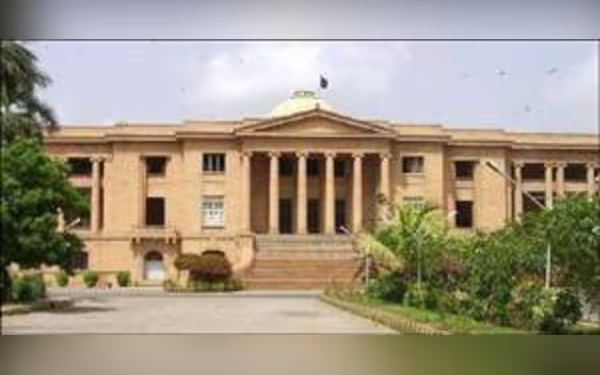Friday, October 4, 2024 10:40 AM
Sindh High Court Dismisses BIEK Chairman Over Illegal Appointment
- Sindh High Court removes BIEK chairman Syed Zulfiqar Ali Shah.
- Court cites lack of transparency in appointment process.
- Judgment emphasizes need for fair selection in public roles.
 Image Credits: nation_pk
Image Credits: nation_pkSindh High Court removes BIEK chairman Syed Zulfiqar Ali Shah, citing illegal appointment and lack of transparency in the selection process.
KARACHI - In a significant legal development, the Sindh High Court has taken decisive action by removing Syed Zulfiqar Ali Shah from his position as the chairman of the Board of Intermediate Education Karachi (BIEK). This decision comes after the court declared his appointment illegal, citing a lack of transparency and legal support in the process that led to his dual role in managing both BIEK and the Board of Intermediate and Secondary Education Mirpurkhas (BISE-Mirpurkhas).
The ruling was delivered by a two-judge bench of the Sindh High Court circuit court in Mirpurkhas, consisting of Justice Adnan-ul-Karim Memon and Justice Amjad Ali Bohio. The bench emphasized that the appointments made were not only illegal but also lacked lawful authority. Consequently, they ordered the provincial authorities to repatriate Mr. Shah to his original department without delay.
The controversy surrounding Mr. Shah's appointment began when a petition was filed challenging the legitimacy of his role. The court's examination revealed that Mr. Shah, a BS-20 officer from the Federal Board of Secondary and Intermediate Education Islamabad, had his services requisitioned by the Sindh government last year. Initially, he was appointed as the chairman of BISE-Mirpurkhas on a one-year deputation. However, in August of this year, he was also given the additional responsibility of chairman of BIEK, which raised questions about the legality of such appointments.
In their judgment, the bench pointed out that the controlling authority responsible for appointing the chairman, secretary, and controller of examinations must follow a competitive process based on recommendations from a search committee. The court noted that the Sindh Board of Intermediate and Secondary Education Ordinance, 1972, does not grant the controlling authority the power to directly requisition services from a federal employee. This is crucial because the search committee is mandated to recommend candidates through a fair and competitive process.
Furthermore, the bench highlighted that any deputation from the federal government must comply with specific criteria established by the Supreme Court in previous rulings. The court referenced cases such as Ali Azhar Khan Baloch versus the province of Sindh and Ghansham Das versus the government of KPK, which set clear guidelines for such appointments.
The Sindh High Court's ruling serves as a reminder of the importance of transparency and adherence to legal protocols in public appointments. It underscores the necessity for a fair selection process to ensure that qualified individuals lead educational institutions. As the education sector continues to evolve, it is imperative that such standards are upheld to foster trust and integrity within the system. The removal of Mr. Shah not only highlights the court's commitment to justice but also sets a precedent for future appointments, ensuring that they are conducted with the utmost fairness and legality.













